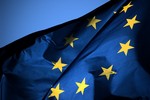The UK food industry would face a labour shortfall, export uncertainty and a regulatory black hole if Britain walked away from the EU, experts have warned.

Quitting Europe would bring ‘mind blowing’ consequences for the UK food and drink sector, experts warn
Prime Minister David Cameron said this morning (January 23) he wanted to renegotiate the UK’s relationship with the EU, before putting it to a referendum by 2017.
This would give the public the option to accept the outcome, or leave the EU all together – provided he is still in Number 10 after the next election.
While the move has been welcomed by most of his party, Naeema Choudry, a partner at Eversheds legal firm, told FoodManufcature.co.uk it created significant uncertainty for the food and drink industry.
“On the one hand, UK businesses which want to invest in Europe may be deterred while overseas companies looking to invest in Europe may not favour the UK,” she said.
Migrant workers
Choudry added that food businesses which relied heavily on migrant workers would also be affected if Britain left the EU, because the free movement of workers would presumably no longer apply.
“There are also certain European subsidies that might be lost, meaning we are less competitive compared to the rest of Europe,” she added.
Cameron’s announcement has also raised the spectre of UK food and drink firms falling down a regulatory black hole, with most laws and regulations now coming from Brussels.
Jamie Weall, senior food law advisor at testing firm Exova, said: “The fact is that most legislation now comes out of Europe – we simply don’t have much national legislation any more.
“The key question is, where would food legislation come from?”
‘Mind-blowing’
Attempting to untangle the many regulations that come out of Europe would be “mind blowing”, agreed Julian Wild, food group director at law firm Rollits.
He viewed Cameron’s speech as an entirely political response to the UK Independence Party.
Wild – who told FoodManufacture.co.uk that he worked on the Britain in Europe campaign in 1975 – said: “These sort of policy decisions are driven by short-term political pragmatism.
“Exports are hugely important to the UK economy and food and drink sector exports to Europe are a key player.
“It’s always possible to pick holes in Europe, but on balance engagement with Europe has been a positive thing for the UK in general and the food sector in particular,” he said.
“Also, what set of messages does it send to European investors in the UK?”
Cameron said he would campaign with his “heart and soul” to stay in the EU – provided he could secure a new relationship he was happy with.
Melanie Leech, director general of the Food and Drink Federation, said exports were crucial to the future growth of the industry and welcomed “the Prime Minister’s confirmation that preserving the Single Market would be at the heart of his objectives for any future Conservative policy towards Europe”.
Peter Kendall, National Farmers Union president, said Cameron's speech was start of the very long debate about the UK’s relationship with the EU. "There is a lot to be reviewed and we have not yet seen the specific areas that government will focus on," he said.
“It is vital that our farmers are treated fairly and equally with their European competitors and so the NFU’s focus remains on the fight for what is best for British agriculture.”





